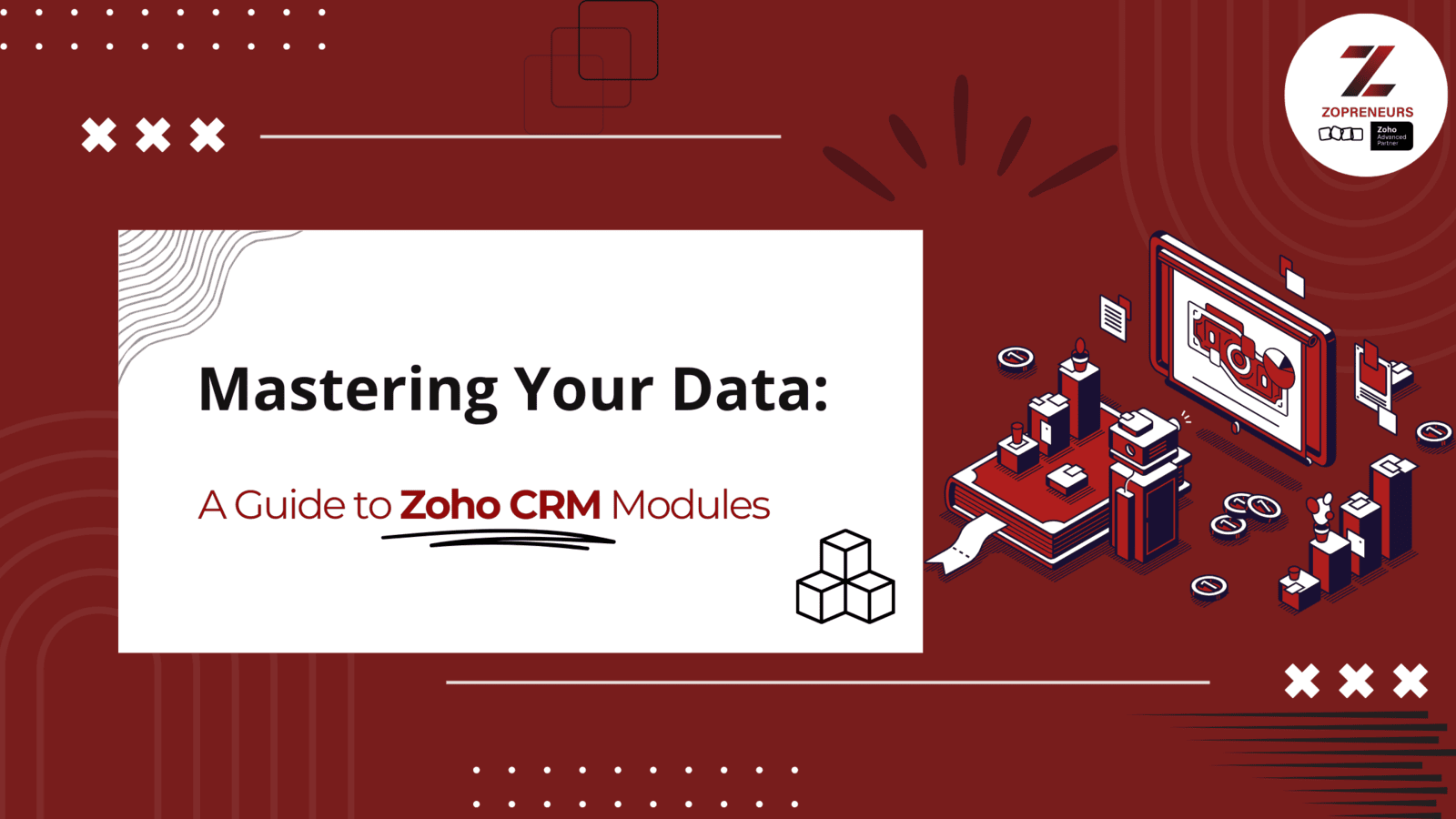
Zoho CRM boasts a powerful and versatile system built around modules. But for new users, these modules can seem a bit mysterious. Fear not! This blog will be your guide to understanding and utilizing Zoho CRM modules to their full potential.
What are Modules?
Think of modules as the building blocks of your Zoho CRM data. Each module represents a specific category of information, such as Leads, Contacts, Deals, or even custom categories you create. Within each module, you can store and manage relevant data points or fields. For example, the Contacts module might include fields for a contact's name, email address, phone number, and company.
Benefits of a Modular CRM
Organization: Modules keep your data organized and easily accessible. No more hunting through spreadsheets or emails to find what you need.
Customization: Zoho CRM offers a variety of pre-built modules, but you can also create custom modules to fit your specific needs. This allows you to track any data point relevant to your business.
Relationships: Modules can connect to each other, revealing valuable relationships between your data. For instance, a Lead can be converted to a Contact, which can then be linked to a Deal. This holistic view fosters better decision-making.
Reporting & Automation: Modules provide the foundation for powerful reporting and automation features. By segmenting your data into modules, you can generate reports that provide deeper insights into your sales pipeline, customer interactions, and more. Additionally, workflows can be automated based on specific actions within modules, saving you time and ensuring consistency.
Getting Started with Modules
Zoho CRM comes with several standard modules out-of-the-box, including:
Leads: Potential customers who have expressed interest in your product or service.
Contacts: Existing individual customers or contacts within an organization.
Deals: Opportunities to close sales.
Accounts: Companies or organizations you do business with.
Potentials: A broader category encompassing Leads and Deals.
You can also create custom modules to manage any data point specific to your business, such as Projects, Events, or Service Tickets.
Tips for Effective Module Management
Plan Your Modules: Before diving in, consider the data you need to track and how it relates to each other. This planning will ensure your modules are well-structured and meet your business needs.
Leverage Custom Fields: Standard fields might not capture everything you need. Use custom fields to tailor modules to your specific data requirements.
Maintain Data Quality: Regularly review and update your data to ensure its accuracy and usefulness.
Explore Automation: Workflows based on module actions can automate repetitive tasks and streamline your processes.
Conclusion
By understanding and effectively utilizing Zoho CRM modules, you can organize your customer data, gain valuable insights, and ultimately improve your sales and customer service efforts. So, take some time to explore the modules Zoho CRM offers and unleash the power of a well-organized CRM system!
